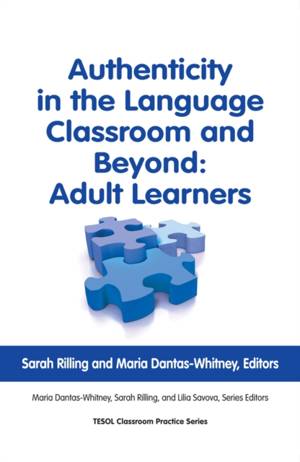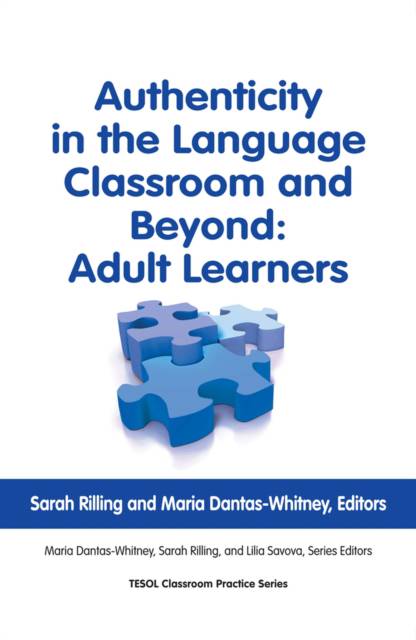
- Afhalen na 1 uur in een winkel met voorraad
- Gratis thuislevering in België vanaf € 30
- Ruim aanbod met 7 miljoen producten
- Afhalen na 1 uur in een winkel met voorraad
- Gratis thuislevering in België vanaf € 30
- Ruim aanbod met 7 miljoen producten
Zoeken
Authenticity in the Language Classroom and Beyond: Adult Learners
€ 67,45
+ 134 punten
Omschrijving
Adult language learners have specific learning goals that reflect their lives within a global society, and adults negotiate multiple and changing identities throughout their personal, academic, and professional lives. Chapters in Authenticity in the Language Classroom and Beyond: Adult Learners highlight how teachers have the ability to transform language instruction from a mechanical learning experience to a dynamic interaction to assist learners in reaching real-world goals. Rather than focus only on native-speaker norms of language production, English language instruction can provide adult learners with opportunities to create and act on their own texts, engage meaningfully with audiences, and develop interactions that mirror their purpose for learning. The chapters in this volume demonstrate how language teaching practices engage learners' inauthentic experiences, using and producing texts to meet international and localized communication needs. All the chapters in this volume demonstrate that authenticity is more than just the materials we use. Authenticity also means using language for real purposes. It means engaging students in collaborative learning, involving discussions, negotiations, and decision making. Authenticity is creating real uses for English, not just modeling native-speaker language and culture. With English increasingly being used as a lingua franca to connect second language speakers, authenticity takes on new meanings as we seek to develop learners who can face the challenge of communicating effectively in an increasingly globalized world.
Specificaties
Betrokkenen
- Uitgeverij:
Inhoud
- Aantal bladzijden:
- 262
- Taal:
- Engels
- Reeks:
Eigenschappen
- Productcode (EAN):
- 9781931185608
- Verschijningsdatum:
- 27/08/2009
- Uitvoering:
- Paperback
- Formaat:
- Trade paperback (VS)
- Afmetingen:
- 175 mm x 251 mm
- Gewicht:
- 476 g

Alleen bij Standaard Boekhandel
+ 134 punten op je klantenkaart van Standaard Boekhandel
Beoordelingen
We publiceren alleen reviews die voldoen aan de voorwaarden voor reviews. Bekijk onze voorwaarden voor reviews.







